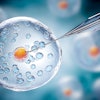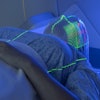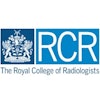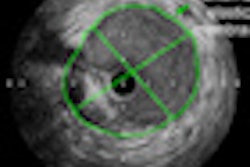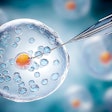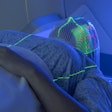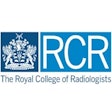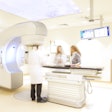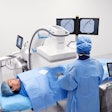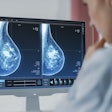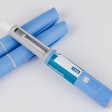
BOSTON (Reuters) - Routine breast screening with mammograms is less effective at preventing cancer deaths than expected, Norwegian researchers said on Wednesday in a study that reignites a fierce debate over the value of screening.
They said inviting women aged 50 to 69 to have routine mammograms and offering them better care from a team of experts helped cut the breast cancer death rate by 10%.
But the death rate in women over 70 -- a group that also got better care but was not urged to have mammograms -- fell by 8%, indicating that the mammograms only produced a slight benefit.
"There is a reduction in mortality, but it's lower than we anticipated," Dr. Mette Kalager of Oslo University Hospital, whose study appeared online today in the New England Journal of Medicine, said in a telephone interview.
The researchers had expected a 30% reduction.
Based on the study, screening mammograms may add only a 2% benefit in cutting breast cancer deaths, Dr. Gilbert Welch of New Hampshire's Dartmouth Medical School wrote in a commentary in the journal.
Dr. Welch said the new results show that for every 2,500 women age 50 who receive a mammogram, only one will avoid dying of breast cancer and as many as 1,000 will be told that doctors have seen something suspicious.
About 500 of those will be subjected to a biopsy, and between 5 and 15 women will be treated unnecessarily for a condition that was never going to bother them, Dr. Welch wrote.
The study adds fresh fuel to the debate over the effectiveness of routine mammograms, billed as a way to detect a cancer that kills 519,000 people worldwide a year.
Last November, new guidelines from the U.S. Preventive Services Task Force -- recommending that the test be taken every other year instead of every year for women 50 to 74 -- sparked criticism from many breast cancer experts, advocacy groups and U.S. lawmakers.
The Norwegian findings prompted questions from Dr. Daniel Kopans of Massachusetts General Hospital and an official with the American College of Radiology.
"This article suggests that most of the decrease in breast cancer deaths is due to improvements in therapy with a lesser contribution from screening," he said in a statement.
"There are large, published studies from Sweden and the Netherlands that show that most of the decrease in deaths is actually due to screening and not therapy," Dr. Kopans said.
Dr. Kalager and Dr. Welch said those studies were done before 1990 and screening may be less effective now because treatment has improved.
Dr. Kalager and her team studied data from 40,075 women, tracking the reduction in cancer deaths as a screening program was expanded throughout Norway, beginning in 1996. It also coincided with improved treatment for patients.
One of the study's authors, Dr. Marvin Zelen of Harvard, said in a telephone interview that the women studied had access to a multidisciplinary team to manage their disease. That makes it harder to discern which element -- mammograms or therapy-- played the bigger role in cutting cancer deaths by 10%.
Dr. Kopans said the average follow-up of just 2.2 years was too short and likely accounts for the new results. "The full impact of screening would not be expected so soon," he said.
Dr. Kopans also said the women in the Kalager study were screened every two years, whereas women in the United States have been encouraged to be screened every year, which would give cancers less time to grow between screens.
Dr. Kopans said the debate over mammograms "is confusing and draining" for women and their doctors.
"It is time to accept that screening, beginning at the age of 40, is saving tens of thousands of lives," he said.
By Gene Emery
Source: http://link.reuters.com/han94p
N Engl J Med 2010.
Last Updated: 2010-09-23 9:49:03 -0400 (Reuters Health)
Related Reading
The breast screening hullabaloo: Where are we today? August 19, 2010
Will new HHS guidance improve mammography screening rates? August 10, 2010
HHS rules support earlier mammography, July 14, 2010
HHS proposes HIPAA changes, July 9, 2010
10,000-plus in U.S. die for lack of cancer screens: CDC, July 6, 2010
Copyright © 2010 Reuters Limited. All rights reserved. Republication or redistribution of Reuters content, including by framing or similar means, is expressly prohibited without the prior written consent of Reuters. Reuters shall not be liable for any errors or delays in the content, or for any actions taken in reliance thereon. Reuters and the Reuters sphere logo are registered trademarks and trademarks of the Reuters group of companies around the world.
